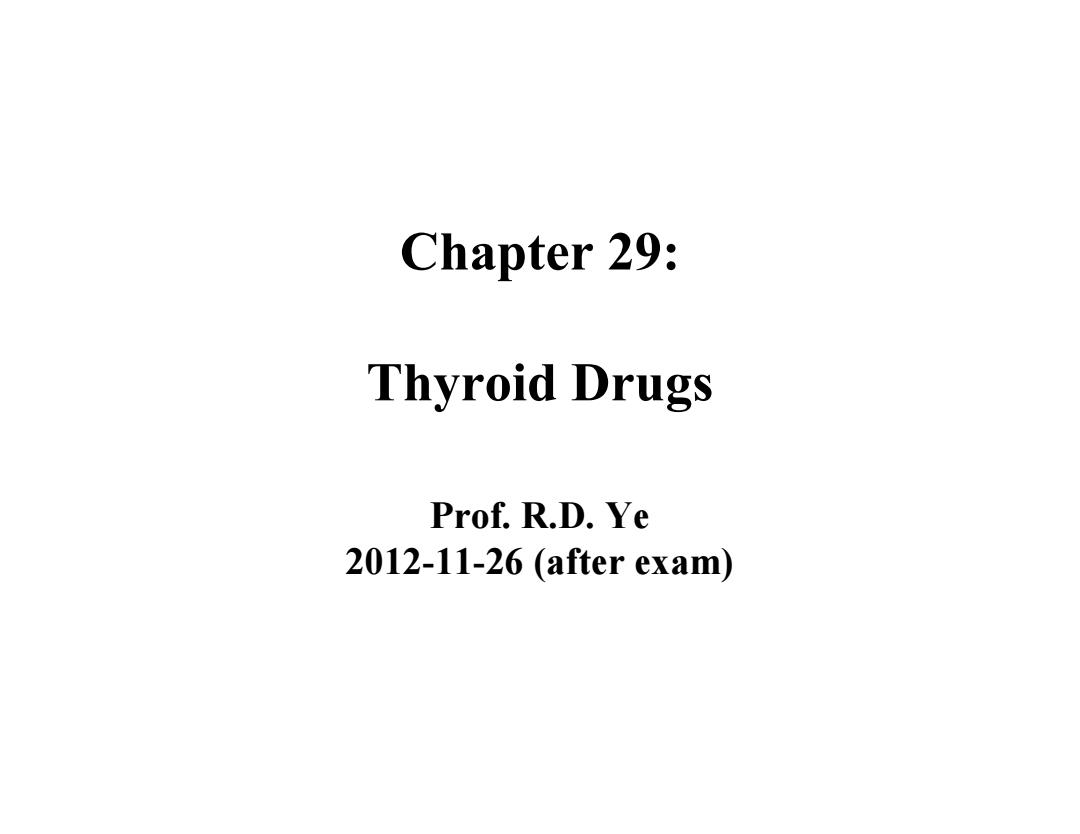
Chapter 29: Thyroid Drugs Prof.R.D.Ye 2012-11-26(after exam)
Chapter 29: Thyroid Drugs Prof. R.D. Ye 2012-11-26 (after exam)
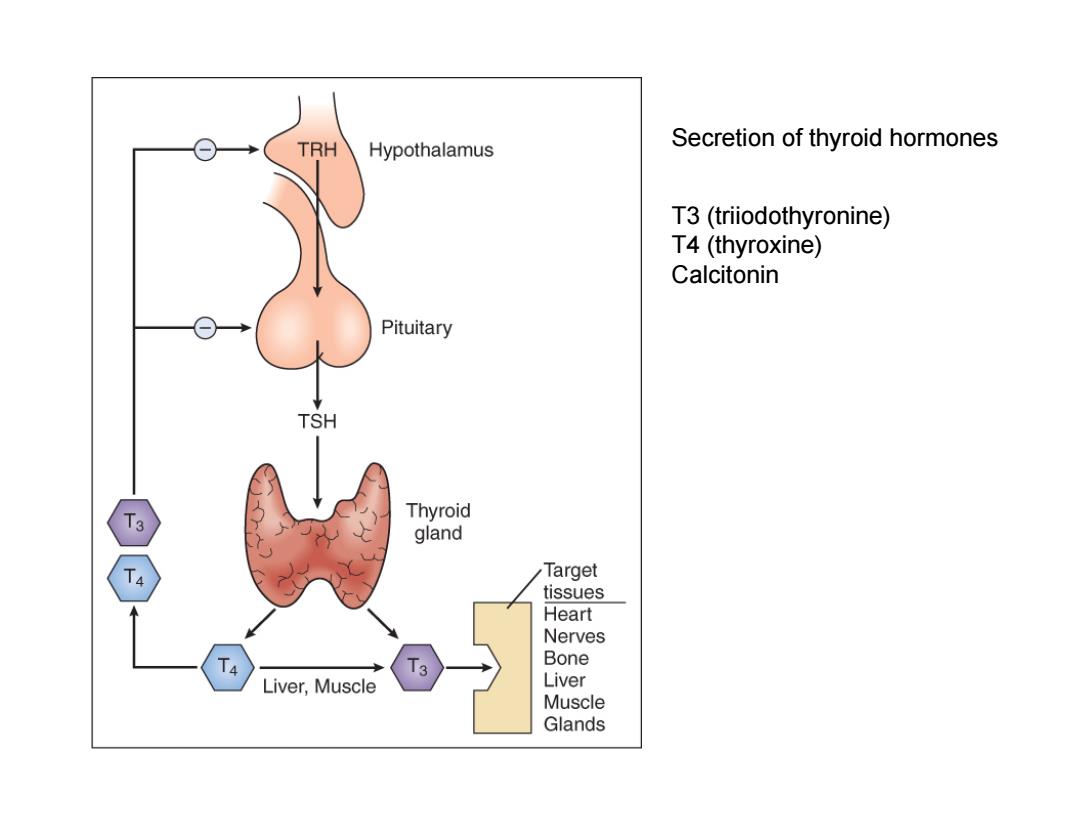
TRH\ Hypothalamus Secretion of thyroid hormones T3(triiodothyronine) T4(thyroxine) Calcitonin Pituitary TSH T3 Thyroid gland Target tissues Heart Nerves TA Bone Liver,Muscle Liver Muscle Glands
Secretion of thyroid hormones T3 (triiodothyronine) T4 (thyroxine) Calcitonin
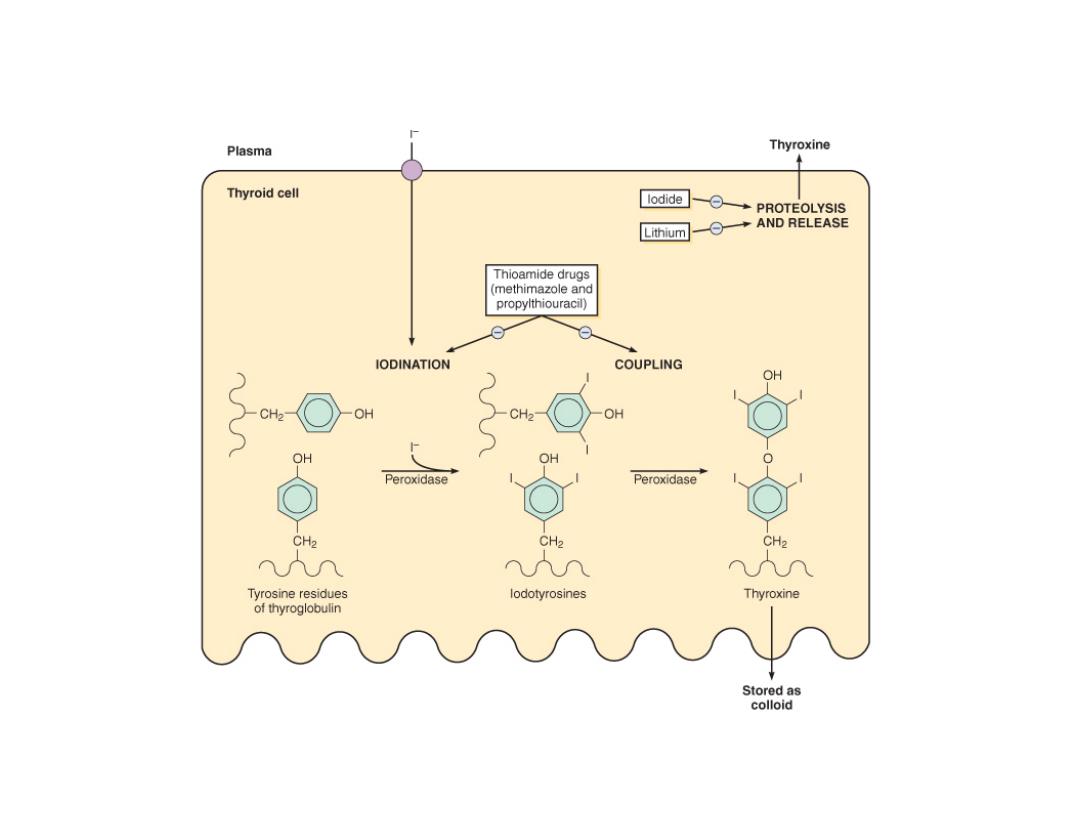
Plasma Thyroxine Thyroid cell lodide O→PROTEOLYSIS ⊙→ AND RELEASE Lithium Thioamide drugs methimazole and propylthiouracil) IODINATION COUPLING OH CH2 OH CH2 OH OH Peroxidase Peroxidase CH2 CH2 CH2 Tyrosine residues lodotyrosines Thyroxine of thyroglobulin Stored as colloid
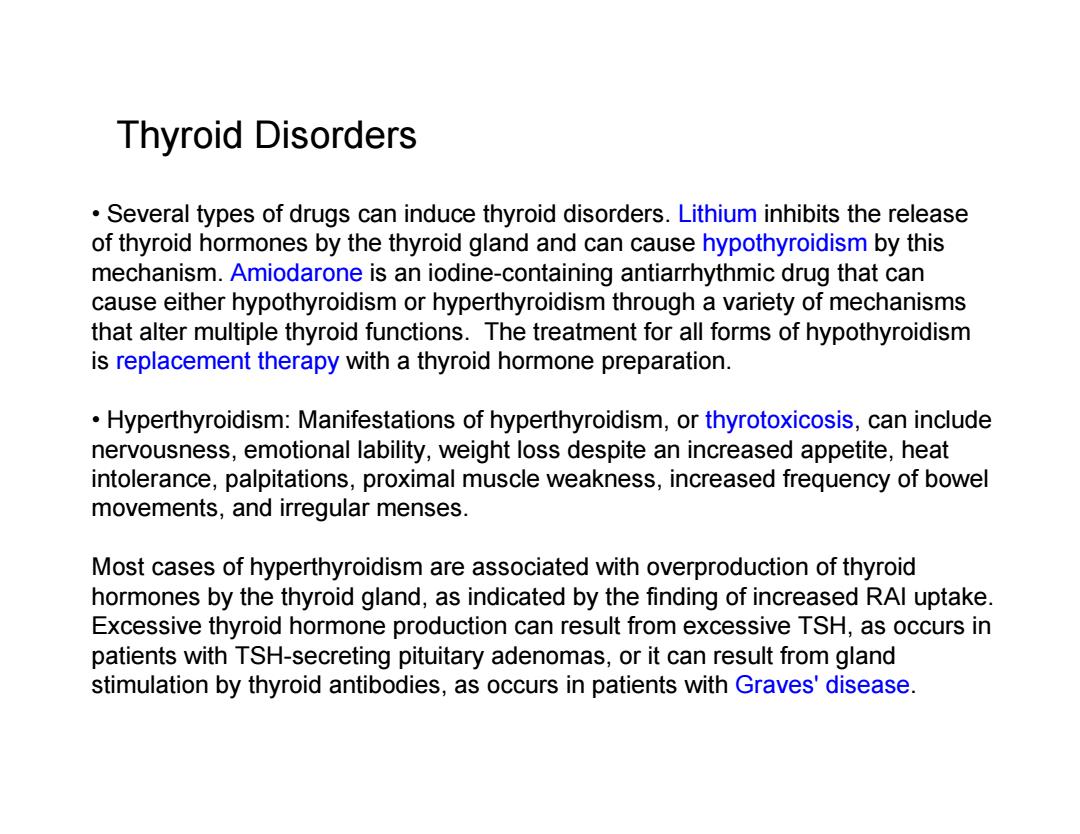
Thyroid Disorders Several types of drugs can induce thyroid disorders.Lithium inhibits the release of thyroid hormones by the thyroid gland and can cause hypothyroidism by this mechanism.Amiodarone is an iodine-containing antiarrhythmic drug that can cause either hypothyroidism or hyperthyroidism through a variety of mechanisms that alter multiple thyroid functions.The treatment for all forms of hypothyroidism is replacement therapy with a thyroid hormone preparation. Hyperthyroidism:Manifestations of hyperthyroidism,or thyrotoxicosis,can include nervousness,emotional lability,weight loss despite an increased appetite,heat intolerance,palpitations,proximal muscle weakness,increased frequency of bowel movements,and irregular menses. Most cases of hyperthyroidism are associated with overproduction of thyroid hormones by the thyroid gland,as indicated by the finding of increased RAl uptake. Excessive thyroid hormone production can result from excessive TSH,as occurs in patients with TSH-secreting pituitary adenomas,or it can result from gland stimulation by thyroid antibodies,as occurs in patients with Graves'disease
Thyroid Disorders • Several types of drugs can induce thyroid disorders. Lithium inhibits the release of thyroid hormones by the thyroid gland and can cause hypothyroidism by this mechanism. Amiodarone is an iodine-containing antiarrhythmic drug that can cause either hypothyroidism or hyperthyroidism through a variety of mechanisms that alter multiple thyroid functions. The treatment for all forms of hypothyroidism is replacement therapy with a thyroid hormone preparation. • Hyperthyroidism: Manifestations of hyperthyroidism, or thyrotoxicosis, can include nervousness, emotional lability, weight loss despite an increased appetite, heat intolerance, palpitations, proximal muscle weakness, increased frequency of bowel movements, and irregular menses. Most cases of hyperthyroidism are associated with overproduction of thyroid hormones by the thyroid gland, as indicated by the finding of increased RAI uptake. Excessive thyroid hormone production can result from excessive TSH, as occurs in patients with TSH-secreting pituitary adenomas, or it can result from gland stimulation by thyroid antibodies, as occurs in patients with Graves' disease
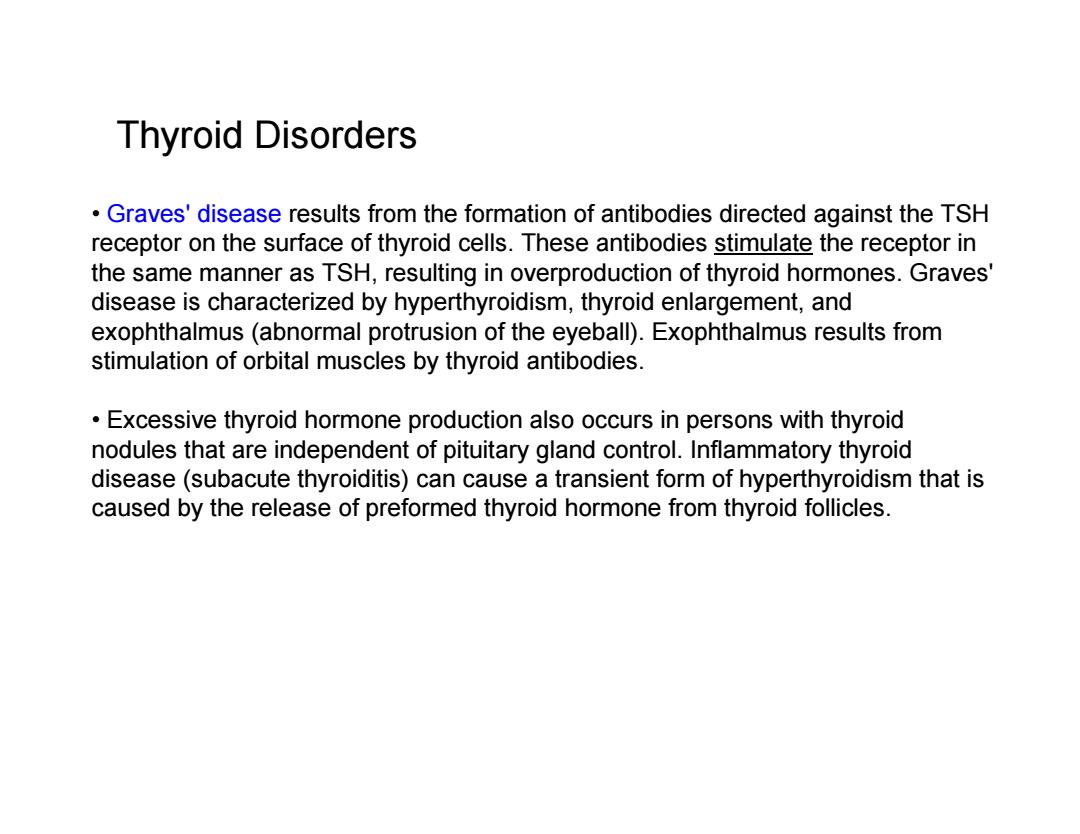
Thyroid Disorders Graves'disease results from the formation of antibodies directed against the TSH receptor on the surface of thyroid cells.These antibodies stimulate the receptor in the same manner as TSH,resulting in overproduction of thyroid hormones.Graves' disease is characterized by hyperthyroidism,thyroid enlargement,and exophthalmus(abnormal protrusion of the eyeball).Exophthalmus results from stimulation of orbital muscles by thyroid antibodies. Excessive thyroid hormone production also occurs in persons with thyroid nodules that are independent of pituitary gland control.Inflammatory thyroid disease(subacute thyroiditis)can cause a transient form of hyperthyroidism that is caused by the release of preformed thyroid hormone from thyroid follicles
Thyroid Disorders • Graves' disease results from the formation of antibodies directed against the TSH receptor on the surface of thyroid cells. These antibodies stimulate the receptor in the same manner as TSH, resulting in overproduction of thyroid hormones. Graves' disease is characterized by hyperthyroidism, thyroid enlargement, and exophthalmus (abnormal protrusion of the eyeball). Exophthalmus results from stimulation of orbital muscles by thyroid antibodies. • Excessive thyroid hormone production also occurs in persons with thyroid nodules that are independent of pituitary gland control. Inflammatory thyroid disease (subacute thyroiditis) can cause a transient form of hyperthyroidism that is caused by the release of preformed thyroid hormone from thyroid follicles